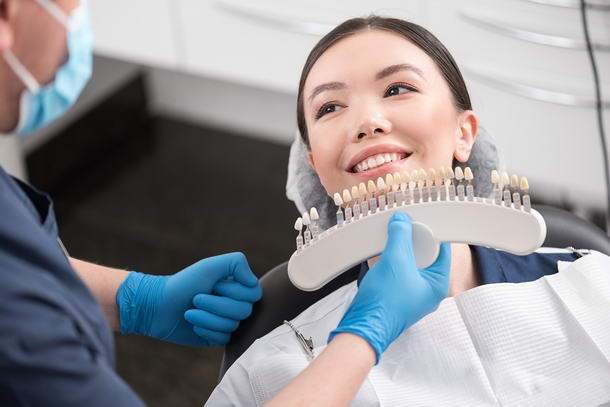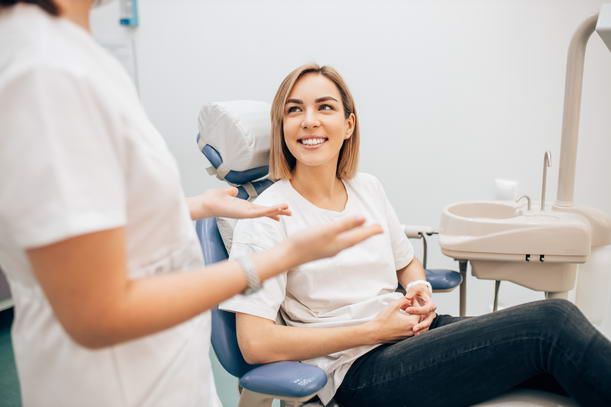To Order Proscar Online Visit Our Pharmacy ↓

Others
By lowering DHT levels, Proscar effectively slows down the hair loss process and, in some cases, promotes hair regrowth. Additionally, finasteride can also cause some psychological effects such as depression, although this is exceedingly rare. Meanwhile, newer treatments like Platelet-Rich Plasma (PRP) therapy and laser therapy are gaining ground for not only halting hair loss but also promoting hair regrowth without systemic side effects. Contrast this with saw palmetto, a natural remedy that also offers relief but reportedly has fewer adverse effects, like stomach upset. On the counter, natural options might appeal due to fewer perceived side effects, but their efficacy lacks the rigorous testing Proscar has undergone. Its efficacy lies in the inhibition of 5-alpha-reductase, an enzyme responsible for converting testosterone into dihydrotestosterone (DHT). It's crucial for patients to consult healthcare providers for a comprehensive understanding of all the benefits and to weigh them against the possible risks and side effects.
Understanding the Purpose and Potential Risks
The journey of individuals battling hair loss has been transformed by their experiences with Proscar, shedding light on the medication's effectiveness for hair regrowth. Particularly interesting are stories from those who had previously tried and failed with other hair loss treatments, finding success only after switching to Proscar. When seeking guidance on Proscar, it is essential to engage with a healthcare professional to navigate the complexities of its usage. These side effects are generally rare and are reversible upon discontinuation of the medication. Understanding the potential side effects of Proscar can help individuals make informed decisions about their medication regimens and overall health management. Additionally, discussing with your healthcare provider about potential comp medications or non-pharmacological interventions can provide a more comprehensive approach to managing your condition. While scientific research provides the foundation for understanding Proscar's mechanism of action, these real-life accounts illustrate the practical implications: improved hair density, slowed hair loss progression, and, for many, a regained sense of normalcy.
Evaluating the Safety Profile
The most commonly reported adverse effects include a decrease in libido, difficulty in achieving an erection, and a decrease in the ejaculate volume. Proscar, scientifically known as finasteride, is a medication that combats hair loss by targeting the root cause at the hormonal level. While Proscar (finasteride) presents a promising solution for hair loss, it's important to be aware of its potential side effects. Additionally, Proscar has been found to reduce the risk of acute urinary retention and the need for surgical intervention in some patients. The consensus among experts is that this medication can significantly slow hair loss and, in some cases, even stimulate new growth in patients. This action helps to halt hair loss and, in many cases, promotes regrowth of hair by allowing the hair follicles to recover and produce hair more effectively. It's vital to discuss these potential side effects with your healthcare provider to make an informed decision about whether to proceed with Proscar treatment.
Safety First: Potential Side Effects and Considerations
Some individuals may experience side effects such as decreased libido, erectile dysfunction, and breast tenderness. Originally developed and FDA-approved for benign prostatic hyperplasia (BPH), finasteride works by inhibiting the conversion of testosterone into dihydrotestosterone (DHT), a hormone linked not only to hair loss but also to the enlargement of the prostate. However, like all medications, it comes with its set of potential side effects. Additionally, healthcare providers may also recommend dose adjustments or the temporary discontinuation of Proscar if side effects are particularly disruptive. The impact of Proscar on hair growth is not immediate but unfolds over months of consistent use. Prioritizing this consultation contributes to informed decision-making and promotes overall well-being. It's imperative for users to remain patient and allow time for the body to adjust to the medication.
Halting Hair Loss: the Science of Inhibition
Each story, while unique, weaves into a larger narrative about the transformative potential of Proscar for individuals grappling with hair loss, offering hope and validation for those considering or currently undergoing treatment. Understanding the pharmacodynamics of Proscar is essential, especially when comparing to natural remedies or comp medications, which may not undergo the same rigorous testing. When it comes to the efficacy of Proscar, clinical studies have shown promising results in managing symptoms related to benign prostatic hyperplasia. Over time, users may observe a noticeable improvement in hair density and a slowdown in hair loss progression. Understanding the science behind Proscar and setting realistic expectations are essential steps in debunking myths and recognizing the genuine potential of Proscar in combating hair loss. Proscar, known generically as finasteride, has become a pivotal player in the arena of hair restoration, but how does it stack up against other treatments? On one hand, finasteride's appeal lies in its simplicity—taken orally, it blocks the conversion of testosterone to dihydrotestosterone (DHT), which is a key culprit in male pattern baldness. Patients should be aware of these risks and consult their healthcare provider if any concerning symptoms arise.
Demystifying Common Myths Surrounding Proscar and Hair Loss
Lifestyle adjustments, such as engaging in regular exercise, maintaining a healthy diet, and managing stress levels, can help in minimizing the impact of side effects. By reducing the production of dihydrotestosterone (DHT), a hormone that contributes to prostate growth, finasteride, the active ingredient in Proscar, helps in alleviating urinary symptoms associated with BPH. Proscar's safety profile is paramount in assessing its overall suitability for individual use. This includes improved urine flow and a decreased urgent need to urinate, thereby enhancing the quality of life for those affected. This contrasts starkly with topical treatments like minoxidil, which requires daily application and can be less convenient for some users. This action preserves the hair follicles' vitality, promoting healthier and thicker hair growth. This selective inhibition means that finasteride can reduce scalp and serum DHT levels without significantly affecting testosterone levels, preserving hormonal balance.
Cost Comparison: Proscar and Alternative Treatments
Despite its benefits, the discussion around Proscar is nuanced, with dermatologists also pointing out the necessity of managing patient expectations. Clinical trials and extensive research have demonstrated that regular intake of Proscar can lead to a significant decrease in DHT concentration, offering a viable solution for those struggling with male pattern hair loss while maintaining a favorable safety profile. Some patients may experience notable hair recovery, whereas others might see a slowdown in hair loss or minimal regrowth. Additionally, experts underscore the importance of ongoing evaluation and possible integration with other treatments for optimal hair restoration strategy, taking into account the individual needs and medical histories of their patients. When it comes to cost, Proscar is generally more expensive than many generic medications available in Pharm Land. Many users express surprise at the effectiveness of Proscar, recounting years of struggling with hair loss before finding a solution that finally worked for them. However, they also advise a thorough discussion about potential side effects and the importance of adhering to prescribed dosages to optimize outcomes.
Navigating the Side Effects: What You Need to Know
Notably, it plays a significant role in the management and treatment of benign prostatic hyperplasia (BPH), commonly referred to as enlarged prostate. This chemical compound operates by selectively inhibiting the activity of an enzyme responsible for converting testosterone into its more potent form, dihydrotestosterone (DHT). Minoxidil, for instance, can be used by both men and women, whereas Proscar is only approved for use in men. To further navigate the waters of side effects, users can employ several strategies. Proscar, also known by its generic name finasteride, works by inhibiting the conversion of testosterone into dihydrotestosterone, a hormone that contributes to prostate enlargement. The effectiveness of finasteride lies in its ability to selectively target the type 2 isoenzyme of 5-alpha reductase, which is predominantly found in hair follicles. These narratives, combined with professional endorsements, make a strong case for the drug's potential in reversing the daunting effects of hair thinning and loss.
Consulting a Healthcare Professional
Proscar, a commonly prescribed drug, operates by inhibiting the conversion of testosterone to dihydrotestosterone (DHT), which is pivotal in shrinking an enlarged prostate or addressing male pattern baldness. Alternative scripts like finasteride also target DHT but are marketed differently and might have variations in patient adherence due to brand loyalty and side effect profiles. Proscar, a medication originally developed to tackle prostate gland enlargement issues, has since been discovered to also have remarkable effects on hair growth. High levels of DHT are linked to hair follicle shrinkage, which can lead to the thinning and eventual loss of hair. Regular check-ups are recommended to monitor the drug's efficacy and to check for any adverse reactions. Clinical trials and studies underscore the impact of Proscar on hair restoration. Consulting a healthcare professional is crucial to address any side effects and determine the best course of action for each individual's specific needs.
Understanding How Proscar Works
Being proactive in addressing side effects and following professional advice can significantly enhance the overall experience and outcomes with Proscar. Proscar, primarily known for its capacity to combat hair loss, boasts a range of additional benefits that extend well beyond the realm of baldness. On a molecular level, the mechanism of action provides a targeted approach to preventing hair thinning and loss, without affecting overall testosterone levels significantly. It is important to monitor any unusual symptoms and consult your healthcare provider if you experience any concerns. Side effects of Proscar can vary from person to person, with common ones including decreased libido, erectile dysfunction, and reduced ejaculate volume. Regular monitoring and communicating any concerns or changes to a healthcare professional can help mitigate unwanted effects and adjust treatment plans as necessary. When considering alternatives and lifestyle changes to address your health concerns, it's important to explore options beyond relying solely on Proscar.













